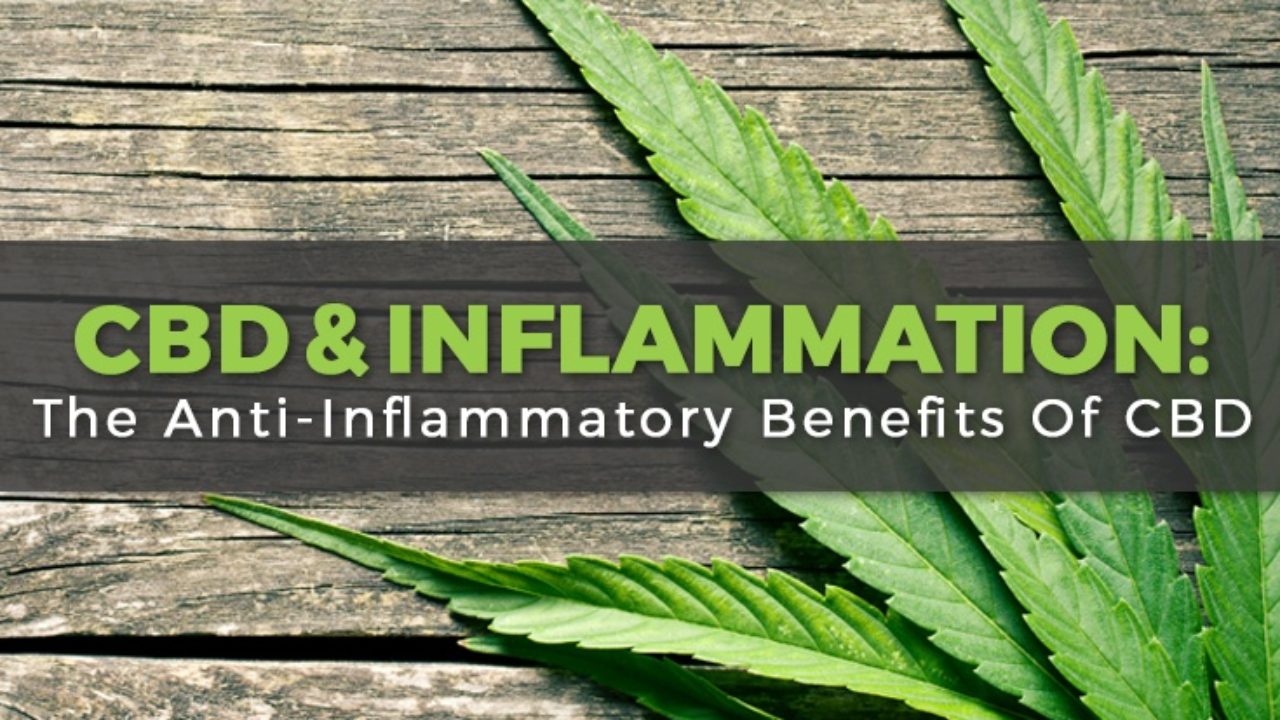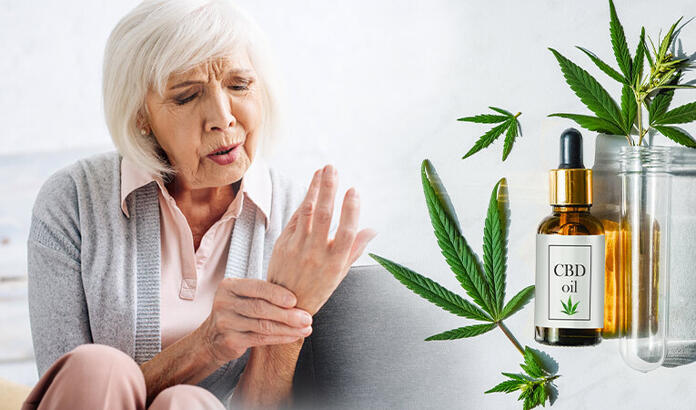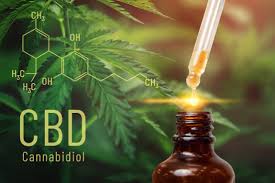CBD and THC are two of the most well-known compounds in the cannabis plant. While they come from the same plant, they have distinct properties and effects. In this beginner’s guide, we will delve into CBD and THC, exploring their differences, benefits, potential risks, and more.
CBD, short for cannabidiol, is a non-intoxicating compound that has recently gained significant popularity. It is extracted from hemp, a variety of cannabis containing low THC levels. On the other hand, THC, or tetrahydrocannabinol, is the primary psychoactive compound in cannabis that produces the “high” sensation.
Understanding the differences between CBD and THC is crucial for anyone interested in exploring their potential benefits. Whether you are seeking relief from pain, inflammation, anxiety, or simply curious about these compounds, this guide will equip you with the knowledge you need to make informed decisions and navigate the world of CBD and THC products.
So, let’s dive in and explore the fascinating realm of CBD and THC!
What is CBD?
CBD, short for cannabidiol, is a compound derived from the cannabis plant. Unlike its well-known counterpart, THC (tetrahydrocannabinol), CBD is non-psychoactive, meaning it does not produce the “high” typically associated with cannabis use. This makes CBD a popular choice for those seeking the potential therapeutic benefits of cannabis without the mind-altering effects.
CBD is believed to interact with the body’s endocannabinoid system, a complex network of receptors found throughout the body that helps regulate various bodily functions such as sleep, mood, appetite, and immune response. By interacting with these receptors, CBD may help restore balance and promote overall wellness.
Potential Benefits of CBD
The potential benefits of CBD are vast and varied. Research suggests CBD may have anti-inflammatory, analgesic (pain-relieving), and anxiolytic (anxiety-reducing) properties. People have reported using CBD for a wide range of conditions, including but not limited to:
- CBD for pain relief: Some studies have shown that CBD may effectively reduce chronic pain associated with arthritis, fibromyalgia, and multiple sclerosis.
- CBD for anxiety and depression: Preliminary research suggests that CBD may have anxiolytic and antidepressant effects, potentially helping to alleviate symptoms of anxiety and depression.
- CBD for insomnia: Some individuals have found that CBD can help improve sleep quality and reduce insomnia symptoms.
- CBD for epilepsy: CBD has gained recognition for its potential anticonvulsant properties, with the FDA approving a CBD-based medication called Epidiolex for treating certain forms of epilepsy.
- CBD for skincare: Topical CBD products, such as creams and lotions, have gained popularity for their potential benefits in reducing inflammation, acne, and eczema.
- CBD for other conditions: Ongoing research is investigating the potential of CBD in addressing various other conditions, including ADHD, migraines, weight loss, and even cancer. However, more studies are needed to fully understand the effects and efficacy of CBD for these conditions.
Different Forms of CBD Products
CBD is available in various forms to suit different preferences and needs. Some of the most common forms of CBD products include:
- CBD oil: A versatile option, CBD oil is taken orally by placing a few drops under the tongue. It can also be added to food or beverages.
- CBD capsules: For those who prefer a more convenient and precise option, CBD capsules provide pre-measured doses of CBD that can be easily swallowed.
- CBD edibles: From gummies to chocolates, CBD edibles offer a tasty and discreet way to consume CBD. They come in various flavors and dosages.
- CBD topicals: Creams, lotions, and balms infused with CBD are applied directly to the skin, providing localized relief and potential benefits for skincare.
- CBD tinctures: Like CBD oil, CBD tinctures are liquid extracts typically taken sublingually. They can be found in different flavors and strengths.
- CBD vaping: Vaping CBD involves inhaling vaporized CBD oil using a vaporizer or vape pen. This method allows for quick absorption of CBD into the bloodstream.
It is important to note that the effectiveness and dosage of CBD can vary depending on the individual and the specific product. It’s always best to start with a low dose and gradually increase as needed while consulting a healthcare professional.
For more in-depth information on CBD, CBD dosage, and CBD side effects, feel free to check out the articles on our website. We strive to provide accurate and up-to-date information to help you make informed decisions about your health and wellness journey.
What is THC?
In the world of cannabis, THC stands for delta-9-tetrahydrocannabinol, a compound primarily responsible for the plant’s psychoactive effects. When we talk about getting “high” or experiencing a sense of euphoria after consuming cannabis, THC is at play.
THC, or as some might call it, the “party starter,” is found in varying concentrations in different strains of cannabis. It binds to special receptors in the brain, known as cannabinoid receptors, triggering a cascade of chemical reactions that ultimately result in the altered state of consciousness commonly associated with marijuana use. It’s important to note that THC is not the only compound in cannabis with therapeutic potential; other cannabinoids like CBD also play a significant role in the overall effects of the plant.
Psychoactive Effects of THC
The psychoactive effects of THC are what make it both popular and controversial. When consumed, THC interacts with the endocannabinoid system in our bodies, which regulates various physiological processes such as mood, appetite, and pain perception. As a result, THC can induce a range of effects, including relaxation, euphoria, heightened sensory perception, increased appetite (also known as the infamous “munchies”), and altered perception of time.
However, it’s worth mentioning that the psychoactive effects of THC can vary greatly depending on factors such as dose, strain, method of consumption, and individual sensitivity. Some people may experience a pleasant and uplifting high, while others may feel anxious or paranoid. It’s essential to start with a low dose and gradually increase it to find the right balance for your desired experience.
Legal Considerations
Regarding the legality of THC, it’s a bit of a mixed bag. In some places, both medical and recreational use of cannabis is legal, allowing individuals to enjoy the psychoactive effects of THC without legal repercussions. However, THC remains illegal or heavily regulated in other areas, restricting its use to medicinal purposes only.
It’s crucial to stay informed about the specific laws and regulations regarding THC in your jurisdiction. While some places have embraced the potential benefits of THC and marijuana, others are still in the process of reevaluating their stance. Always check local legislation and consult with medical professionals before considering THC-based products.
Now that we better understand THC and its psychoactive effects let’s delve into the key differences between THC and CBD, another prominent compound found in cannabis, in the next section.
CBD vs. THC: Key Differences
When understanding the world of cannabis, it’s important to grasp the key differences between CBD and THC. While both compounds are derived from the same plant, Cannabis sativa, they have distinct characteristics that set them apart.
Chemical Composition
At the molecular level, CBD and THC have different chemical structures. CBD, short for cannabidiol, is a non-intoxicating compound found in cannabis. It is one of over 100 cannabinoids present in the plant. On the other hand, THC, or delta-9-tetrahydrocannabinol, is the primary psychoactive component of cannabis that produces the euphoric “high” feeling.
Psychoactive Effects
The psychoactive effects of CBD and THC are perhaps the most significant distinction between the two compounds. While THC is known for its mind-altering properties, CBD does not have the same intoxicating effects. THC binds to the cannabinoid receptors in the brain, leading to the euphoric sensations and altered perception commonly associated with marijuana use. CBD, however, does not bind directly to these receptors and does not produce the same psychoactive effects.
Medical Uses
CBD and THC also differ in terms of their medical applications. While both compounds have therapeutic potential, they are often used for distinct purposes. CBD has gained popularity for its potential relief from anxiety, pain, inflammation, and seizures. It is even being explored for its potential benefits in managing conditions such as ADHD, depression, and cancer. On the other hand, THC is commonly used for its pain-relieving properties and its ability to stimulate appetite and reduce nausea, making it valuable for patients undergoing chemotherapy or struggling with appetite loss due to certain medical conditions.
Understanding these key differences between CBD and THC is crucial for consumers looking to make informed choices about their cannabis products. Whether you’re interested in exploring CBD’s benefits or seeking THC’s psychoactive effects, knowing the distinctions will help guide your decision-making process. Remember to consider factors such as chemical composition, psychoactive effects, and medical uses when choosing between CBD and THC products.
For more information on CBD, including its potential benefits and different product forms like CBD gummies, check out our What is CBD article.
How CBD and THC Interact
When it comes to the world of cannabis, it’s essential to grasp how CBD and THC interact. These two compounds, found in varying levels in the cannabis plant, have distinct effects on the body and mind. Understanding their interaction can help you make informed decisions about the types of products you choose to incorporate into your wellness routine.
Entourage Effect
One of the key concepts in understanding CBD and THC is the Entourage Effect. This term refers to the synergistic relationship between the various compounds in the cannabis plant, including cannabinoids, terpenes, and flavonoids. It suggests that these compounds work together to enhance each other’s benefits, producing a more substantial effect than when used individually.
Research has shown that the Entourage Effect may contribute to the therapeutic potential of cannabis products. For example, combining CBD and THC in a product might provide enhanced pain relief, anti-inflammatory properties, and anti-anxiety effects. This phenomenon highlights the importance of using full-spectrum or broad-spectrum CBD products containing a range of cannabinoids and other beneficial plant compounds.
CBD to THC Ratios
Another crucial aspect of understanding how CBD and THC interact is considering the CBD-to-THC ratios in different products. These ratios determine the relative amounts of CBD and THC in a particular cannabis product.
CBD-dominant products have higher CBD to THC ratios, meaning they contain more CBD than THC. These products are often preferred by individuals seeking the potential therapeutic benefits of CBD without the psychoactive effects associated with THC. They can be particularly helpful for those who want to maintain clear-headedness while experiencing the potential health benefits of CBD.
On the other hand, THC-dominant products have higher THC-to-CBD ratios, making them more suitable for individuals seeking the euphoric and psychoactive effects typically associated with cannabis use. These products are commonly used for recreational purposes.
There are also products with balanced CBD to THC ratios, which aim to provide a harmonious combination of the two compounds. These balanced products may offer a gentle psychoactive experience while still providing the potential therapeutic benefits of CBD.
When choosing CBD or THC products, it’s important to consider your personal preferences, desired effects, and any specific health concerns you may have. Factors such as the desired level of psychoactivity, the potential therapeutic benefits you seek, and the legal considerations in your area should all be considered.
Understanding how CBD and THC interact and the various ratios available can empower you to make informed decisions about the products that align with your needs and preferences. By exploring the entourage effect and considering CBD to THC ratios, you can navigate the vast array of CBD and THC products available on the market and find the ones that work best for you.
Choosing CBD or THC Products
When it comes to selecting between CBD and THC products, there are several factors to consider. Each individual may have different needs and preferences, so it’s essential to understand these factors before deciding. Here are some key factors to keep in mind:
1. Desired Effects:
Consider what you hope to achieve with the product. Are you looking for relaxation, pain relief, or help with sleep? CBD is often associated with calming effects and potential benefits for anxiety, inflammation, and pain relief. On the other hand, THC is known for its psychoactive properties and may provide a more euphoric and uplifting experience.
2. Legal Considerations:
It’s crucial to know the legal status of CBD and THC in your area. While CBD is legal in many places, THC is still heavily regulated and may only be available for medical use or in states where recreational marijuana is legal. Research the laws and regulations in your specific location before purchasing any products.
3. Sensitivity to Psychoactive Effects:
THC is the compound responsible for the “high” associated with marijuana. If you are sensitive to psychoactive effects or prefer to avoid them, CBD products may be a better choice. CBD is non-intoxicating and does not produce the same mind-altering effects as THC.
4. Drug Testing:
If you are subject to drug testing, it’s important to note that THC can sometimes be detected in these tests, even in small amounts. CBD products, especially those made from hemp, typically contain less than 0.3% THC, the legal limit. However, it’s always a good idea to choose broad-spectrum CBD products or CBD isolates to avoid any potential issues with drug tests.
5. Consumption Preferences:
Consider how you prefer to consume the product. CBD and THC products come in various forms, including oils, tinctures, capsules, edibles, and more. Some people may prefer the convenience and discreetness of capsules or edibles, while others may enjoy the fast-acting effects of vaping or sublingual oils. Think about your lifestyle and personal preferences when choosing a consumption method.
6. Dosage:
Finding the right dosage is essential for both CBD and THC products. It’s recommended to start with a low dose and gradually increase it until you achieve the desired effects. Remember that individual responses may vary, so listening to your body and adjusting the dosage is important. If you’re unsure about the appropriate dosage, consult a healthcare professional or refer to reputable sources for guidance.
By considering these factors, you can decide whether CBD or THC products are the right choice for you. Do thorough research, read product labels, and consult a healthcare professional. Finding the right product and dosage can greatly enhance your experience and maximize the potential benefits of CBD or THC.
Potential Side Effects and Risks
CBD and THC, like any other substance, can have potential side effects and risks. Before incorporating them into your wellness routine, it is important to be aware of these. While CBD and THC are generally well-tolerated by most individuals, it’s crucial to understand that everyone’s body chemistry is unique, and how they interact with these compounds may vary.
Common Side Effects
When it comes to CBD, the common side effects are usually mild and temporary. These may include drowsiness, dry mouth, changes in appetite, and mild digestive discomfort. It’s important to note that these side effects are generally rare and tend to occur at higher doses.
On the other hand, THC, being the psychoactive component of cannabis, may cause more pronounced side effects. These can include euphoria, increased heart rate, impaired coordination, and short-term memory loss. It’s worth mentioning that these effects are typically associated with higher doses of THC and may not be experienced by everyone.
Potential Risks
While CBD is generally considered safe, it’s important to note that the long-term effects of CBD use are still being studied. Research is ongoing to fully understand the potential risks associated with long-term CBD use, especially at high doses. However, based on current scientific evidence, CBD is considered to have a low potential for abuse or addiction.
On the other hand, THC poses a higher risk in terms of its psychoactive effects and potential for abuse. It’s important to be mindful of the legal considerations surrounding THC use, as it is still classified as a controlled substance in many parts of the world. Additionally, individuals with a history of mental health conditions, such as anxiety or psychosis, may be more susceptible to the adverse effects of THC.
Ultimately, it’s essential to approach CBD and THC use cautiously and consult with a healthcare professional before incorporating them into your wellness routine. They can provide personalized guidance and help you determine the appropriate dosage and consumption methods based on your needs and health status.
Understanding the potential side effects and risks associated with CBD and THC is crucial to making informed decisions about your well-being. By staying informed and seeking professional advice, you can confidently navigate the world of CBD and THC and maximize the potential benefits they offer.
Conclusion
In conclusion, CBD and THC are two fascinating compounds derived from the cannabis plant that have gained significant attention in recent years. While they share a common origin, their effects and legal considerations differ greatly.
CBD, or cannabidiol, is a non-psychoactive compound that has been studied for its potential therapeutic benefits. It has shown promise in alleviating symptoms associated with various conditions, such as pain, inflammation, anxiety, and even epilepsy.
On the other hand, THC, or tetrahydrocannabinol, is the primary psychoactive compound in cannabis that produces the “high” sensation. It is known for its recreational use and its potential medical applications, particularly in managing pain and nausea.
One of the key differences between CBD and THC is their chemical composition. CBD does not bind strongly to the cannabinoid receptors in the brain, resulting in its non-intoxicating effects. THC, however, binds tightly to these receptors, leading to its psychoactive properties.
When choosing between CBD and THC products, you must consider personal preferences, desired effects, and legal restrictions in your area. The dosage and consumption method also plays a crucial role in optimizing the benefits while minimizing potential side effects.
Speaking of side effects, both CBD and THC may have some adverse effects, although they are generally considered safe. Common side effects of CBD include tiredness, diarrhea, and changes in appetite, while THC can cause anxiety, paranoia, and impaired memory.
In summary, CBD and THC offer distinct experiences and potential benefits. CBD is widely available in various forms, from CBD gummies to CBD capsules, making it a convenient option for those seeking its potential health benefits. THC, on the other hand, requires more consideration due to its psychoactive effects and legal restrictions.
Before incorporating CBD or THC into your wellness routine, it’s always advisable to consult with a healthcare professional, especially if you have any underlying medical conditions or are taking medications that may interact with these compounds.
To learn more about CBD and its potential benefits, check out our article on what is CBD. For a comprehensive understanding of CBD dosage, possible side effects, and more, visit our website at www.mrmeangreen.com.
Remember, knowledge is power, and staying informed is the key to making informed decisions about your health and well-being. So, whether you’re considering CBD for pain relief, inflammation, or any other health concern, arm yourself with the latest CBD research and make an informed choice that suits your needs.




